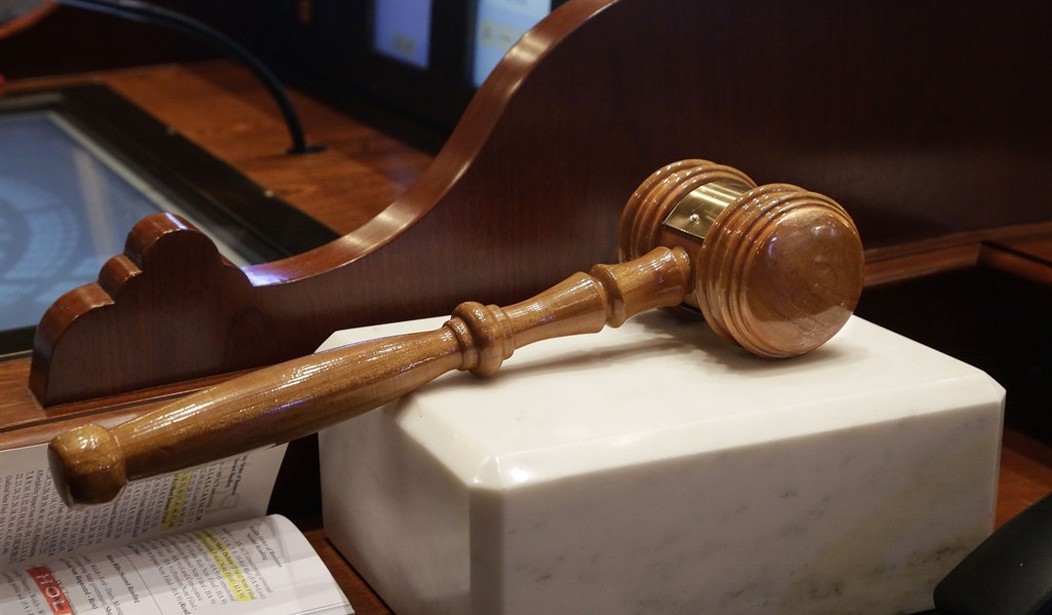Editor's note: This column was co-authored by Jack Brown.
“Because I said so.” “Life isn’t fair.” “Ignorance of the law is no excuse.” These are some of the great cop-outs of all time, and the last one is particularly troubling in a country with so many laws that it is impossible to count—let alone read—them all. When was the last time you sat down with a complete set of the federal, state, and local codes setting forth the tens of thousands of criminal violations for which you could be sent to jail? If you answered “never,” you’re in good company. Nevertheless, America’s judges still cling to the proposition that it’s perfectly fine to lock people up for doing something they had no idea was illegal. But it’s not fine, and the justifications for that palpably unfair rule have only grown more threadbare with time.
Things have gotten so bad that even an act as innocent as sharing a Netflix password or a bank website password with a family member could potentially carry criminal penalties if the website disallows password sharing. The Computer Fraud and Abuse Act of 1986 bans intentionally accessing a computer “without authorization,” and the Supreme Court has recently declined to hear a case from the Ninth U.S. Circuit Court of Appeals, United States v. Nosal, that held that password sharing could be prohibited by the Act. Although the majority opinion did not explicitly mention innocent password sharing, the dissent noted that the lack of any limiting principle meant that the majority’s reasoning could easily be used to criminalize a host of innocent conduct.
One rationale for the maxim that ignorance of the law is no excuse was to give people an incentive to educate themselves about legal requirements. But as any law student will attest, one can study those requirements for years and barely scratch the surface. Another rationale was to prevent people from escaping criminal penalties by claiming ignorance, even when they actually knew they were breaking the law. That might have made sense in ancient times when there were only a few dozen crimes on the books and all of them involved morally blameworthy conduct like murder, arson, or rape.
But today the law has grown so complicated, and the relationship between law and morality so attenuated, that these supporting rationales no longer make sense. There have been multiple attempts to count the number of federal crimes, including by the Department of Justice, and no one has yet succeeded. Title 18 of the United States Code, which governs crimes and criminal procedure, has over 6,000 sections, and it is estimated that there are more than 4,500 federal crimes and over 300,000 agency regulations containing criminal penalties. And of course this does not include the dizzying array of state and local criminal codes, ignorance of which is practically assured but still not excused.
Recommended
Moreover, as noted, the increasing criminalization of morally blameless conduct makes the punishment of innocent mistakes even more likely. For example, federal law makes it illegalto possess the feather of any native migratory bird even if one just picks it up off the ground, and the potential penalties for doing so include fines and even time in prison. Think federal prosecutors would exercise their discretion to prevent miscarriages of justice under such obscure laws? Think again. Contrary examples are as numerous as they are horrifying.
A trio of seafood importers were sentenced to eight years in federal prison because some of the lobsters they imported from Honduras were alleged to be undersized or egg-bearing females that were unlawfully shipped in plastic bags instead of the cardboard boxes mandated by federal law.
Or consider the plight of former Indianapolis 500 champion Bobby Unser, who was convicted of illegally driving his snowmobile in a National Forest Wilderness Area in 1996 after he and a friend were stranded in the mountains during a blizzard, and forced to take shelter in a barn while suffering from hypothermia. Reconstructing their meandering path in whiteout conditions, prosecutors concluded they had strayed onto federal land and convicted Unser of the misdemeanor crime of operating a snowmobile in a national wilderness area.
Even people attempting to perform virtuous acts have been persecuted by overzealous regulators. In 2009, Robert Eldridge, a fisherman from West Chatham, Massachusetts, faced up to a $100,000 fine and a year in prison after he freed a humpback whale that had been caught in his fishing gear, and only escaped with a comparatively small $500 fine after pleading guilty. More recently, Alison Capo also faced a year in prison after her daughter rescued a federally protected woodpecker from the family cat. The two were apprehended by a U.S. Fish and Wildlife Officer who overheard them talking about the bird while shopping for a suitable container at a Lowe’s home improvement store (Her initial fine of $535 was ultimately rescinded by the agency, claiming it was a “clerical error.”).
Subjecting well-meaning homeowners, desperate snowmobilers, innocent password sharers, and countless other blameless Americans to prosecution for conduct that no reasonable person would know was illegal does nothing to advance the cause of justice and much to undermine it. If the government cannot even count all of the criminal laws it has enacted, how on earth can citizens be expected to obey them?
Clark Neily is vice president for criminal justice at the Cato Institute.
Jack Brown is a second-year law student at the Antonin Scalia Law School at George Mason University, with areas of interest including constitutional law, property law, and libertarian legal theory.
























Join the conversation as a VIP Member